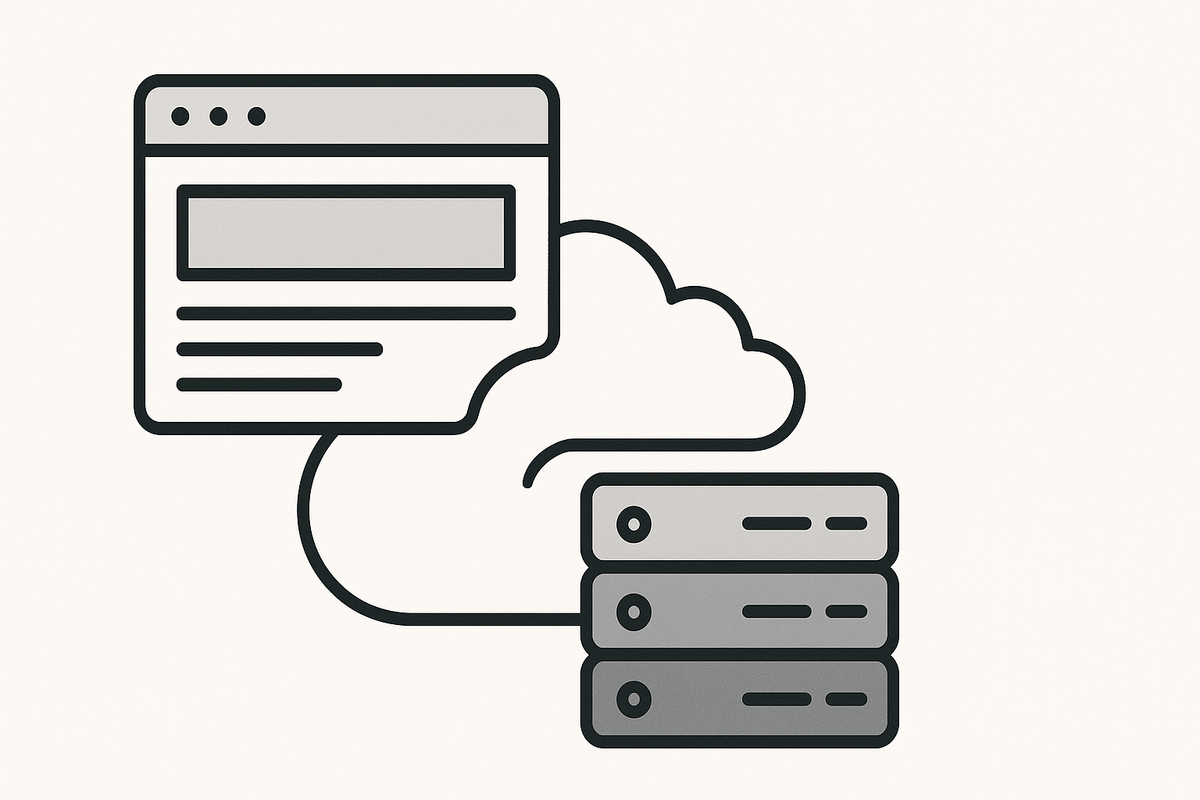What is Web Hosting? A Beginner’s Guide

When you decide to create a website, one of the first confusing terms you’ll come across is “web hosting.” If you’ve never built a site before, it may sound like technical jargon. But in reality, it’s not that
Think of your website as a little house on the internet. You need a piece of land to put it on, right? That “land” is what web hosting provides. Without it, your site has nowhere to live, and no one could visit it.
In this guide, let’s break down what web hosting really means, how it works, and why choosing the right host is more important than most beginners realize.
So, What Exactly is Web Hosting?
Imagine you’ve just written a book. You’re proud of it, but if you leave it sitting on your desk, no one will ever read it. To share it with the world, you’d need to place it in a library or bookstore.
That’s exactly what web hosting does for your website. Your website files — text, images, videos, designs — all need to be stored somewhere safe and accessible. Hosting companies rent out space on their powerful computers, called servers, and make your site available to anyone who types in your web address.
The domain name (like mywebsite.com) is simply the address people type. The web host is the place that actually holds your files. Put them together and suddenly your website becomes a real, living thing on the internet.
How Hosting Works Behind the Scenes
Here’s what happens, step by step, when someone visits your website:
- They type your domain into their browser.
- That domain points to your hosting provider’s server.
- The server pulls up your website files and sends them back across the internet.
- The visitor’s browser receives those files and displays your site.
All of this happens in less than a second. And it works because hosting companies run huge, specialized servers designed to stay online 24/7.
Different Kinds of Hosting
Just like homes, not all hosting is the same. Some people only need a simple apartment, while others need a big mansion with a yard. Hosting works in the same way.
- Shared hosting is like renting a room in a big house with other people. It’s affordable and perfect for beginners, but you share resources with others.
- VPS hosting gives you your own “section” of a server, almost like owning an apartment with locked doors. More private, more powerful.
- Dedicated hosting is like having the whole house to yourself. It’s expensive but gives you maximum control.
- Cloud hosting doesn’t use one physical server—it uses a whole network of servers around the world, so if one goes down, your site stays online.
- Managed WordPress hosting is like hiring a caretaker who does everything for you: updates, speed optimization, and security. Great if you don’t want to get your hands dirty.
For most beginners, shared hosting is the natural starting point. It’s cheap, simple, and enough to get a blog or small business site online.
Why Choosing a Host Actually Matters
A lot of people treat hosting as just another bill to pay, but it’s much more than that. Your host is literally the foundation of your online presence. A weak foundation leads to constant headaches — slow websites, downtime, security problems.
Here’s why good hosting matters:
- Speed: People are impatient. If your site takes more than a few seconds to load, many will leave. A fast host keeps visitors happy.
- Security: Hackers love small websites because they often lack protection. Good hosts give you SSL certificates, firewalls, and backups.
- Reliability: Ever clicked a website only to see an error? That’s downtime. With the wrong host, it happens a lot.
- SEO: Search engines, like Google, reward fast, secure sites with better rankings.
In short: if your host isn’t strong, everything you build on top of it struggles.
Picking Your First Hosting Plan
So, how do you choose your first host?
If you’re new, don’t overthink it. Start small. A beginner-friendly shared hosting plan is more than enough to launch a blog or portfolio. Look for companies that offer one-click WordPress installs, free SSL certificates, and 24/7 support.
Later, as your traffic grows, you can easily upgrade to a VPS or cloud plan. It’s like moving from an apartment to a bigger house when you need more space.
Some of the most beginner-friendly options are Bluehost, Hostinger, and SiteGround. They’re affordable, well-documented, and easy to use — which means you can focus on building your website instead of troubleshooting servers.
Web hosting may sound complicated, but it’s really just the home your website lives in. Without it, your domain would be an empty address leading nowhere. With it, you can share your ideas, business, or creativity with the world.
If you’re just starting out, don’t stress over perfection. Choose a reliable beginner-friendly host, get your site online, and grow from there. Your hosting plan can always be upgraded later — but the important thing is taking that first step.